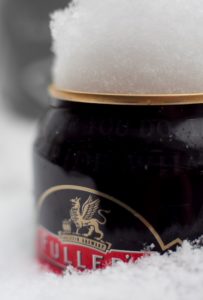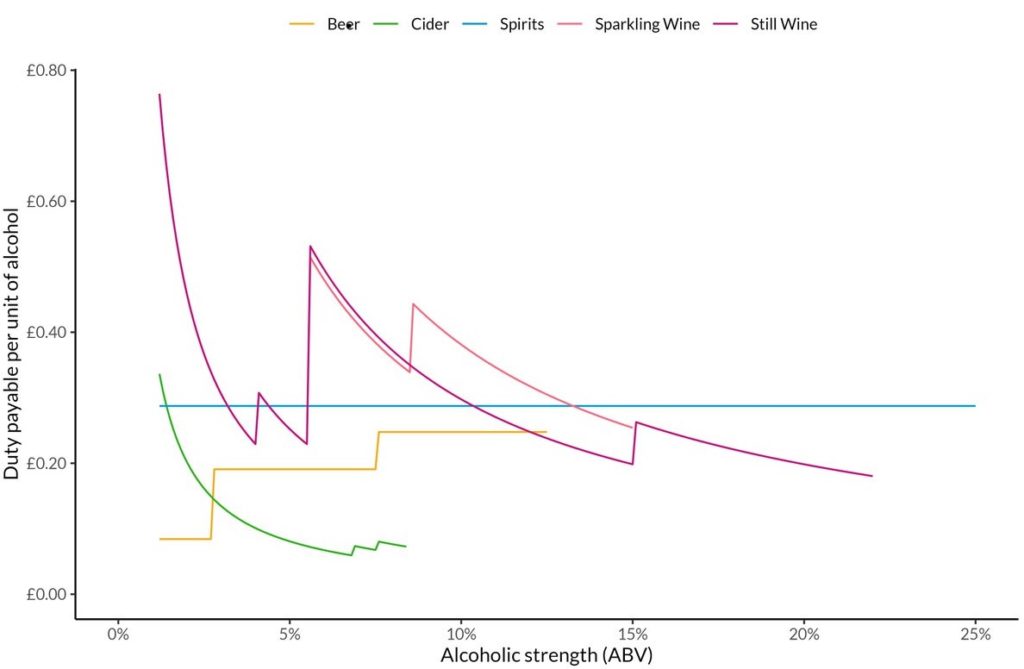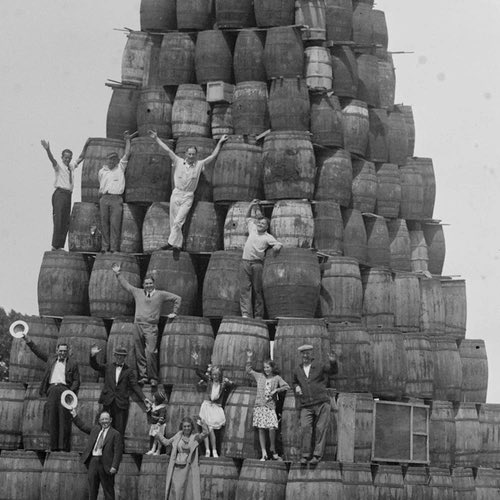 And… that was November. or it will be soon. From mowing the lawn to frozen ground in a mere 30 days. World Series to free agency. Stout sales go from “?” to “!” It’s good like that, November. Knows it’s place. The saddest month. Not cold enough to be bracing and clear like January. Look, I’ve already started to move on. Christmas pressies have been bought. Just have to see if they arrive before January. What else might arrive by then? A Christmas photo contest entry pro photographer Peter B. Collins in 2011 might give you some idea.
And… that was November. or it will be soon. From mowing the lawn to frozen ground in a mere 30 days. World Series to free agency. Stout sales go from “?” to “!” It’s good like that, November. Knows it’s place. The saddest month. Not cold enough to be bracing and clear like January. Look, I’ve already started to move on. Christmas pressies have been bought. Just have to see if they arrive before January. What else might arrive by then? A Christmas photo contest entry pro photographer Peter B. Collins in 2011 might give you some idea.
Now then… first up, a nice bit of work from Retired Martin this week, a photo essay on Whitelock’s in Leeds interspersed with witty tidbits:
All tables taken, but obviously I’d brought the fine weather with me oop north and you don’t get much better outside seating than this, watching life amble by and end up in the loos for the Turks Head, wondering where you are.
Note: I am pro-deposit for reservations.
Not to overload you with pub observations, Life After Football shared some thoughts on one funny gaffer in “Pickled in Branston“:
The Gaffer had a glint in his eye and when I said, “Can I have a pint of Bass?” He replied with “No you can’t – it’s all mine!” Clearly, a man after my own heart and with four other people in there at about 12.05 he has a base of local punters happy to roll in on a Monday. “I’ll get you that pint young man,” he said and when I said I’d not been called that very often, quick as a flash he replied “I’ve been known to lie!”
Har-har… har… And Boak and Bailey asked a couple of good questions this week, one in their newsletter but first, in a variation on the theme, this about memories of past pubs perfect:
We’ve been struck down by nostalgia lately and find ourselves yearning for a particular experience of the pub. Maybe it’s birthdays. Maybe it’s the emotional impact of the two weirdest years we’ve ever lived through. Or perhaps it was just that excellent pint of Young’s Special at The Railway in Fishponds in Bristol.
They were again a bit nostalgic in the monthly newsletter, this time for beer blogging days.
…in the UK at least, the growth in professional (ish) outlets has sucked up a lot of content that would previously have been on blogs. That’s great news for writers – they get paid! They get proper photography and illustrations to accompany their piece! And it gets promoted properly, too. A few years ago, everyone was fretting about the death of beer media, meaning print magazines. But we wanted that and blogs, not one or the other, right?
Well, no. Print writing can be narrow and often by commission. My take? It may not be so much about the death of blogs as the ascent of a duller sort of paid writing. Don’t get me wrong. Some is great but commissioning editors with creditors set parameters.* People with just an interest have gotten to project themselves as people with authority without the decades of Stan‘s experience or the miles Jeff puts in. Others writers – sometimes the better ones – got jobs, moved on or just ran out of imaginative takes on a limited niche topic.
Yes, that is where we are. It happens. And when things are slow like they have been in 2021, we tend to move backwards hoping we are staying in place. This year of almost entirely updated next editions is almost over but not until we have, tah-da, the personalized beer flavour wheel. Beer flavour wheels have been around for decades. I am not sure why I need someone else’s different beer flavour wheel. Never bothered with one yet. But beer flavour wheels have been around for decades so someone must have. Schmelzle‘s dates from 2009. Dr. Morten Meilgaard seems to invented them in the 1970s. I asked a related question a decade ago and still have no idea what the answer is.
Speaking of flogging, this year’s version of the GIBC advertorial in the Chicago Tribune has led to some astounding information, not least of which is this:
The “reserve” package is the one the beer nerds want — 9 Bourbon County beers, including the most limited brands aged in the fancy barrels, for $259.99.
Bizarre. Takes some convincing folk that these prices (and I suppose the advice itself) aren’t suspect – if not grand larceny.
And speaking of the more than a bit weird, the US magazine Esquire published a short opinion piece that led to a long list of complaints:
The first half of a beer is why we drink beer. The second half is an afterthought at best, backwash at worst. If you were to watch all the beer commercials from the beginning of time, you’d hear the words cold and refreshing over and over and over. That’s because marketing people aren’t that creative, and also because that’s what sells beer. No one drinks beer for the tepid second half….
Comments included: (i) No one in their right mind would say this about another foodstuff. “Feel free to toss that second half of cold pizza in the garbage…”; (ii) “You know you can order smaller pours if you want beer to stay cold the whole time?”; and (iii) “Like she had to meet a word count quota before she left for Holiday break.” Esquire has apparently claimed that this is a stab at satire which, if it is true, suggests that it is not actual good satire.
PS: never heard of him either. But it appears the status you are desperately wanting to achieve is so incoherent that it requires outside intervention. And tricks.**
That’s a bit of negativity right there. For a bit right up there. What caused that? Nostalgia? Getting away from the pubs? We need to get grounded. Beth Demmon takes us to the hear and now with the first in a series on the state of the water supply in Southern California where the ground is dry and how the San Diego brewing scene may be facing change:
In such a water-thirsty region, it’s imperative for beverage companies like AleSmith to maximize their materials through sustainability initiatives. Cronin says AleSmith is on a two-year track to become Pure Water compliant through the city of San Diego, which aims to provide one-third of the city’s water supply locally by 2035 by purifying recycled water. Considering that Cronin estimates AleSmith rinses 7,000 – 10,000 gallons of wastewater into the municipal system every day, that’s millions of gallons available for reuse.
I brushed against this topic in 2015 in my superficial way but this is seven levels better. Excellent described detailed research. Additionally and also in the present and the positive, Jordan wrote about himself and what he is doing in beer these days – and this time it all makes utter sense:
I would guess that I probably try somewhere between 500-1000 beers every year, not counting repetition. Beyond a certain point, professionally speaking, beer is content. It’s informational. My fridge is more than half full of obligational beverages that people have sent for review and which might end up on instagram or in an article. I probably won’t finish more than about half of any of them, because the point isn’t drinking them; the point is knowing about them. Beer contains calories, as the new pair of jeans remind me.
Good advice. And look! More good advice. Three ingredient cocktails. Sensible simple tasty booze. That’s positive.
What next? History? History is good. Edd the BHB on 1910 Nottinghamshire ales, the Warwicks & Richardsons range. Did they still sing the song 120 years later? More history? Graham Dineley posed the question of beer stone and prehistoric pottery and found fatal flaws in the research to date:
Many scholarly academic beer “experts” have never actually made beer, and so have no experience or expertise. Brewing beer is a particularly experiential process, where the subtleties and nuances are necessary and essential for the full understanding. Many of these “experts” confuse beerstone with calcium oxalate.
Finally but not happily, this tweet got my attention from Ren:
The irony of being written out of beer history by women hoping to change beer history…
Reality again. I do wish folk would get out of the way. I was also disheartened this week to see another part of Black experience filtered (again) by GBH through the inclusion of the hand of someone from outside. This is a bit of the opposite of my recent experience with the Beer Culture Summit 2021 produced by the Chicago Brewseum. Hand over the keyboard and get out of the way. No amount of time or miles can replace the unfiltered voice of one who has been there and has something to say.
That’s it. A tough one for good pics this week. A bit of a hard row to hoe if we are looking for the captivating in beer writing. Every week can’t be thrilling. I suppose, that’s the way it goes. Still, check out the updates from Boak and Bailey mostly every Saturday and from Stan every Monday, plus more with the weekly Beer Ladies Podcast, and at the weekly OCBG Podcast on Tuesday and sometimes on a Friday posts at The Fizz as well. There is a monthly sort of round up at The Glass. (Or is that dead now?) There is more from the DaftAboutCraft podcast, too. And the Beervana podcast. And sign up for Katie’s weekly newsletter, The Gulp, too. (That’s a bit now and then now.) And check out the Atlantic Canada Beer Blog‘s weekly roundup. Plus follow the venerable Full Pint podcast. And Fermentation Radio with Emma Inch. The AfroBeerChick podcast as well! And also look at Brewsround and Cabin Fever. And Ben has his own podcast, Beer and Badword (which he may revive some day…) And remember BeerEdge, too, and The Moon Under Water.
*Very tempted to go all Ogden Nash and spell it “paramitors.”!
**If your studies include flash cards and tricks… maybe you are not actually studying something at all.













